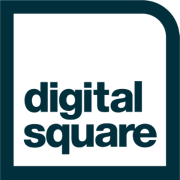What are Global Goods: Difference between revisions
No edit summary |
No edit summary |
||
| Line 3: | Line 3: | ||
Digital health tools which are global goods are software that is (usually) Free and Open Source ([https://en.wikipedia.org/wiki/Free_and_open-source_software FOSS]), supported by a strong community, has a clear governance structure, funded by multiple sources, deployed at significant scale, used in multiple countries, has demonstrated effectiveness, is designed to be interoperable and is an emergent standard application. | Digital health tools which are global goods are software that is (usually) Free and Open Source ([https://en.wikipedia.org/wiki/Free_and_open-source_software FOSS]), supported by a strong community, has a clear governance structure, funded by multiple sources, deployed at significant scale, used in multiple countries, has demonstrated effectiveness, is designed to be interoperable and is an emergent standard application. | ||
==The Need For Global Goods== | |||
* National Academy of Sciences' [http://nationalacademies.org/hmd/reports/2017/global-health-and-the-future-role-of-the-united-states.aspx "Global Health and the Future Role of the United Statesâ ] | |||
The tremendous value and corresponding excitement that digital health provides has come at a cost, as the proliferation of interest and the variety of stakeholders involved has created a fragmented approach to the use of digital tools for health in many countries. In fact, in 2012, Uganda issued a temporary moratorium on digital health pilots because its health system became overrun with them (Green, 2016). Aid programs, nongovernmental organizations, and private companies often create individual, disease-focused tools that fail to be interoperable with one another and are duplicative to in-country systems. Therefore, despite the large investment in digital health applications, these parallel structures often lead to inefficiencies because they cannot be used for other diseases or health priorities. Multiple donors and organizations may be funding and operating multiple surveillance systems for different diseases in the same country, instead of aligning themselves into one interoperable system, integrated with existing national health system infrastructure. The benefit of digital health applications notwithstanding, there is a clear need for a paradigm shift in digital health infrastructure investments. The global health community and U.S. global health programs need to move away from the current practice of single application solutions to a more strategic approach that acts holistically with both current country priorities and long term goals (Mehl and Labrique, 2014). By better coordinating the development of digital health applications, stakeholders involved in digital health can reduce duplication and ensure that the platforms are more aligned with those priorities and goals. | |||
==Maturity Model== | |||
To help identify areas of investments for global goods, Digital Square is developing a [https://docs.google.com/spreadsheets/d/16nZHBsb6Zjsh9T_7Fj7zvMXUspjh39CNSS76UT6WHJU/edit#gid=0 Global Good Maturity Model] for digital health tools. We have engaged the digital health community in the development of this model, in particular the [https://www.healthdatacollaborative.org/how-we-work/digital-health-interoperability-working-group/ Digital Health and Interoperability Working Group] of the [https://www.healthdatacollaborative.org/ Health Data Collaborative]. | To help identify areas of investments for global goods, Digital Square is developing a [https://docs.google.com/spreadsheets/d/16nZHBsb6Zjsh9T_7Fj7zvMXUspjh39CNSS76UT6WHJU/edit#gid=0 Global Good Maturity Model] for digital health tools. We have engaged the digital health community in the development of this model, in particular the [https://www.healthdatacollaborative.org/how-we-work/digital-health-interoperability-working-group/ Digital Health and Interoperability Working Group] of the [https://www.healthdatacollaborative.org/ Health Data Collaborative]. | ||
Revision as of 14:47, 2 November 2017
Digital Square supports investments into various digital health tools which are Global Goods.
Digital health tools which are global goods are software that is (usually) Free and Open Source (FOSS), supported by a strong community, has a clear governance structure, funded by multiple sources, deployed at significant scale, used in multiple countries, has demonstrated effectiveness, is designed to be interoperable and is an emergent standard application.
The Need For Global Goods
- National Academy of Sciences' "Global Health and the Future Role of the United Statesâ
The tremendous value and corresponding excitement that digital health provides has come at a cost, as the proliferation of interest and the variety of stakeholders involved has created a fragmented approach to the use of digital tools for health in many countries. In fact, in 2012, Uganda issued a temporary moratorium on digital health pilots because its health system became overrun with them (Green, 2016). Aid programs, nongovernmental organizations, and private companies often create individual, disease-focused tools that fail to be interoperable with one another and are duplicative to in-country systems. Therefore, despite the large investment in digital health applications, these parallel structures often lead to inefficiencies because they cannot be used for other diseases or health priorities. Multiple donors and organizations may be funding and operating multiple surveillance systems for different diseases in the same country, instead of aligning themselves into one interoperable system, integrated with existing national health system infrastructure. The benefit of digital health applications notwithstanding, there is a clear need for a paradigm shift in digital health infrastructure investments. The global health community and U.S. global health programs need to move away from the current practice of single application solutions to a more strategic approach that acts holistically with both current country priorities and long term goals (Mehl and Labrique, 2014). By better coordinating the development of digital health applications, stakeholders involved in digital health can reduce duplication and ensure that the platforms are more aligned with those priorities and goals.
Maturity Model
To help identify areas of investments for global goods, Digital Square is developing a Global Good Maturity Model for digital health tools. We have engaged the digital health community in the development of this model, in particular the Digital Health and Interoperability Working Group of the Health Data Collaborative.
Currently, the maturity model is in draft (beta) form and a release candidate will be presented at the Global Digital Health Forum in December of 2017.
